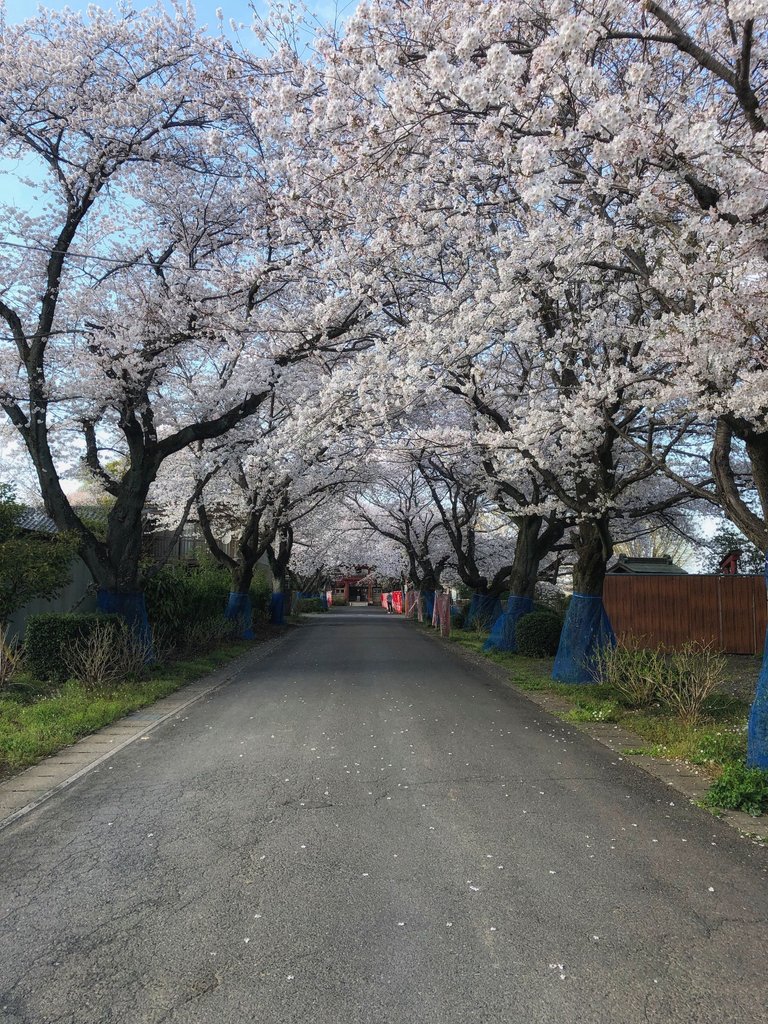The cherry blossoms came and have now almost entirely went. As Charlie Brown might have said, Another Cherry Blossom Season has come and gone. I have thoughts...
like a passing dream on a spring night...
cherry blossoms


I wrote this only a day or two after the cherry blossoms reached full bloom. I was taking a time-out from the general hustle and bustle of the cherry blossoms area and escaping into a shrine for some quiet and a bit of space.
In the shrine area, I noticed that the cherry tree near the komainu statue had already lost half its blossoms and they were scattered on the statue. I suppose that tree is positioned just perfectly to be hit by a gust of wind that did the job. Looking at the petals, the above verse came to me.
The second line is a reference to the poem leading off The Tale of the Heike (heike monogatari). The overall theme of the story is impermanence, specifically the impermanence of rule: how one family can rise to power, but that power ends before they know it. This theme is introduced by a poem so famous that every Japanese schoolchild has to memorize it.
祇園精舎の鐘の聲、
諸行無常の響あり。
娑羅雙樹の花の色、
盛者必衰のことわりをあらはす。
おごれる人も久しからず、
唯春の夜の夢のごとし。
たけき者も遂にほろびぬ、
偏に風の前の塵に同じ。
The ring of the bells at Gion temple,
echoes the impermanence of all things.
The color of the sala flowers,
reveals the truth that to flourish is to fall.
The proud do not endure long,
like a passing dream on a spring night.
The mighty fall at last,
like dust in the wind
Translation mine, which is why you see the exact same line that I used in the haiku. 😃
Influenced by Buddhism, many things in Japanese culture point to this acceptance of the transience of life and the embrace of its sad beauty. This idea is summed up by the phrase mono no aware, "The pathos of things". You can find this idea everywhere in Japan, but probably the cherry blossoms are most often used as the best example of it. Here today, beautiful for a very short time, then gone, scattered to the wind.
Shakespeare famously said of the briefness of life:
Life’s but a walking shadow, a poor player
That struts and frets his hour upon the stage
And then is heard no more: it is a tale
Told by an idiot, full of sound and fury,
Signifying nothing.
Of course Macbeth was somewhat depressed in that scene, but in some ways this is very much the Western perspective: that this evanescence of life ultimately signifies the pointlessness of it; this might play in to the desire in the West to ignore that things are in fact not static and are changing. The Japanese response to this nihilism might be ichigo ichie (一期一会), literally "one time, one meeting", but maybe better said as "once in a life", an idea that every encounter is unique and beautiful, never to be repeated, and therefore treasured. No matter how fleeting something is, it should be cherished. Rather than a shadow signifying nothing, each moment is imbued with profound significance.
Anyway, after enjoying that brief respite in the shrine grounds, I rejoined the crowds enjoying the festivities. Those also would be gone soon, so I wanted to enjoy them as much as I could.
❦
 |
David LaSpina is an American photographer and translator lost in Japan, trying to capture the beauty of this country one photo at a time and searching for the perfect haiku. He blogs here and at laspina.org. Write him on Twitter or Mastodon. |
